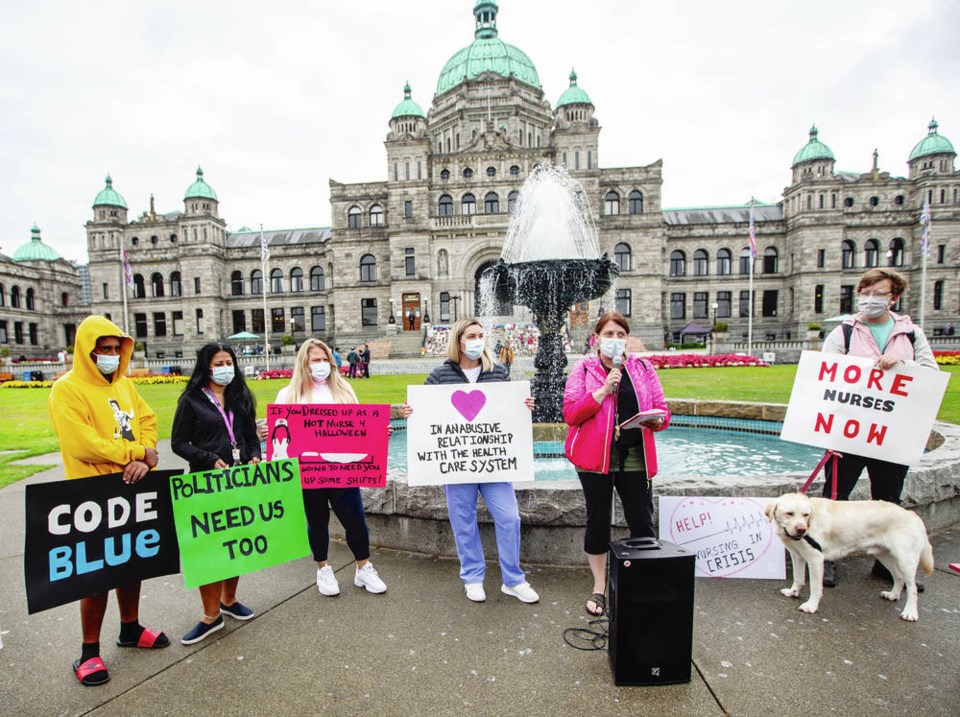Nurses gathered at the legislature Thursday to describe chronic staffing shortages and overwhelming workloads that, they say, is leading to inadequate care for their patients.
“I’d be terrified to be hospitalized right now. It’s awful,” said Alex Rocheleau, a registered intensive care unit nurse in Victoria, in front of a small group gathered on the legislature lawn.
Rocheleau also works as a site co-ordinator, redistributing nurses where needed.
Nurses are pulled from orientation shifts before completing them to work on the ward, and mistakes are being made that compromise patient care because nurses are running from patient to patient to keep up, Rocheleau said.
“There’s a lot of safety steps put in place to avoid that. But like, seriously, people are just running,” Rocheleau said. ”I walk around to the units to check in on people and there’s no one on the floor. They’re all in a patient’s room dealing with something.”
Rocheleau was among the nurses who took the microphone at a small rally organized by Christina Gower, a registered psychiatric nurse on the Lower Mainland, to call attention to effects of the staffing shortage on nurses and the patients they’re caring for.
Gower said both experienced and new nurses are leaving the field because they’re burning out on the workload. “To have somebody’s life in your hands and to know that you’re not safely caring for them and not meeting your standards of care. It’s scaring them right out of our system,” she said.
Allie, a registered psychiatric nurse, drove several hours to attend the rally after finishing a 12-hour night shift. She said her shifts are often short one or two nurses, and more often than not, she can’t take a five-minute break in 12 hours. The workload means it can be difficult to meet the standards of care required.
“If I don’t have enough time to spend that time with a suicidal patient, and I don’t have eyes on them, you know, a lot of things can go seriously wrong. And we’re not able to provide that care anymore with how short-staffed we are,” she said.
After five years in nursing, she’s considering leaving the profession if the situation doesn’t improve.
Gower invited candidates running in the federal election to share how they would address the problem.
Incumbent NDP MP Laurel Collins touted the NDP’s proposed $250-million critical shortage fund to hire and train 2,000 new nurses, and Liberal candidate Nikki Macdonald said her party would invest more money into primary care to ensure everyone has access to a family doctor.
Green candidate Nick Loughton advocated for a pay raise for nurses. To Gower, a pay raise is the first step to retaining experienced nurses and enticing new people to the profession.
“We need the cash infusion from the federal government,” she said.
The B.C. Nurses’ Union did not respond to an interview request.



